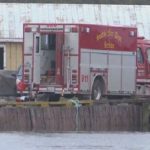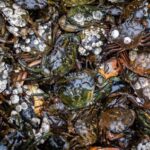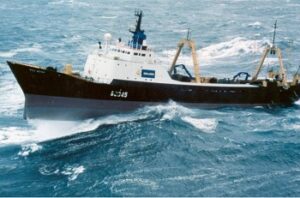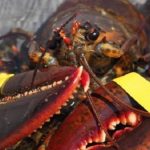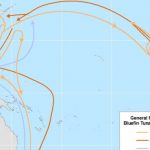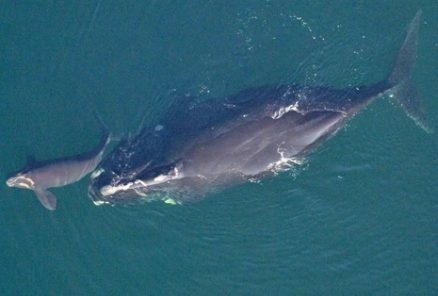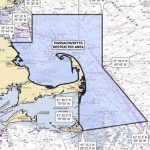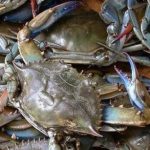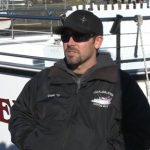Daily Archives: July 9, 2019
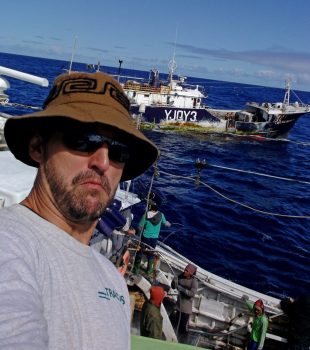
Searching for Keith – A detective’s quest reveals how one idealistic fisheries observer may have collided with criminals and desperate migrants—and paid for it with his life.
Long before Karsten von Hoesslin first heard the name Keith Davis, before he spent countless unpaid hours tugging at investigative threads and careening into dead ends as he searched for answers about the man’s strange disappearance from a fishing vessel, before he jetted to South America chasing clues, he dedicated his days to dealing with a different sort of challenge—pirates.,,, His first case, which he funded with his own savings, was a 2012 mass murder of as many as 34 fishermen in the Indian Ocean.,,, Davis, a fisheries observer originally from Arizona, had been working on the high seas aboard a tuna transshipment vessel—a ship that collects catches from fishing boats and ferries them to port, saving the boats a long trip to shore. As an observer, his job was to independently monitor the catches and collect data from tuna transfers. He was on deck, watching the crew prepare to hoist loads of tuna into the ship’s hold, just before he went missing on a calm September 2015 day in the eastern Pacific at the age of 40. A 44 minute audio report, >click to read< 22:10
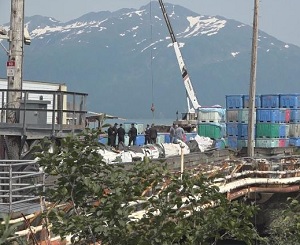
Fishing operations in Whittier back in action after explosion
Commercial fishing operations are resuming with an alternate plan to deal with the backlog of fish after the DeLong dock in Whittier was shut down after Monday’s explosion. Three large commercial fishing operations use the dock to offload fish for processing: Whitter Seafood, Copper River Seafood, and North Pacific Seafood. According to city manager Jim Hunt, the dock shutdown caused several million pounds of fish to sit on the dock for several hours, and many loaded fishing vessels had no way to offload their catches. Now, many fishing operations are using smaller, less-suitable docks to offload fish. They say it is an inconvenience but it’s not going to set them back,, >click to read< 20:12
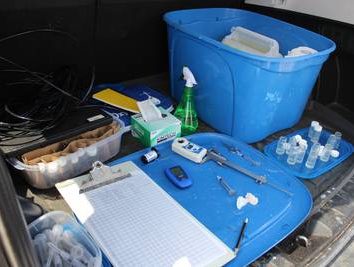
Stress-free Cape Breton lobsters sought – Quality testing began in 2013 as a way to combat low buyer prices
Some Cape Breton fishermen are working hard to make sure your lobster is stress free. Veronika Brzeski, a marine biologist who works for the Cape Breton Fish Harvesters Association, said this helps improve the quality of the lobster meat. Stress causes lactic acid buildup in the meat. Brzeski said she’s read research papers that have attributed high level of lactic acid to less taste and blanching of the meat. This is why Brzeski can often be seen on docks, testing things like oxygen levels in holding tanks, for members of the association. >click to read<17:26
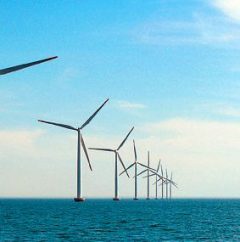
Solar And Wind – Taxpayer-Funded Ponzi Schemes with renewable portfolio laws, or quotas created by your elected politicians
The solar electricity industry is dependent on federal government subsidies for building new capacity. The subsidy consists of a 30% tax credit and the use of a tax scheme called tax equity finance. These subsidies are delivered during the first five years. For wind, there is a subsidy during the first five to ten years resulting from tax equity finance. There is also a production subsidy that lasts for the first ten years. The other subsidy for wind and solar, not often characterized as a subsidy, is state renewable portfolio laws, or quotas, that require that an increasing portion of a state’s electricity come from renewable sources. >click to read< 13:58
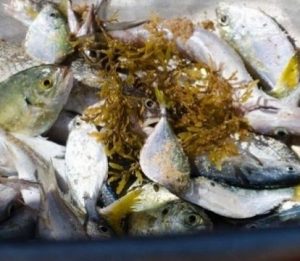
Europe Runs Out of Fish
July 9 is European Fish Dependence Day, the moment when the E.U. has used up all its own seafood resources and must rely entirely on imports for the rest of the year to meet demand. This year it falls about a whole month earlier than in 2000. Illegal fishing and over-fishing are eroding food security, says the Environmental Justice Foundation (EJF) To end this, transparency in the industry must be improved, allowing consumers to make sustainable choices,,, Austria is the first country to run out of fish, only reaching January 17 before exhausting its own supply. The U.K., as a seafaring nation, would reach September 7, still leaving around four months relying entirely on imports. >click to read< 12:43
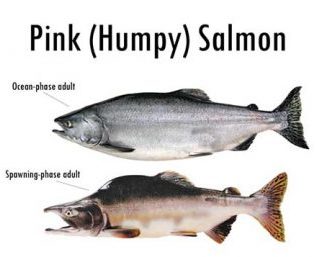
‘Unheard of’ flood of pinks surprises at Alaska Peninsula
The biggest fish story for Alaska’s salmon season so far is the early plug of pinks at the South Alaska Peninsula. By June 28, more than 8 million pink salmon were taken there out of a statewide catch of just more than 8.5 million. Previously, a catch of 2.5 million pinks at the South Peninsula in 2016 was the record for June and last year’s catch was just 1.7 million Managers at the Alaska Department of Fish and Game at Sand Point said at this pace, this month’s catch could near 10 million pinks. By Laine Welch, >click to read< 11:53
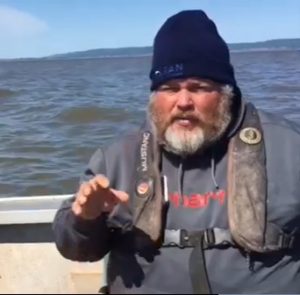
Porter family fights for safe passage of fish in the Minas Basin
When Darren Porter knows the tide and water temperature are right for the gaspereau to make their run, he calls the Department of Agriculture staff person capable of opening the gates in the causeway across the Avon River. “If it’s convenient for them to listen to me they open them, if it’s not they don’t,” said the Hants County fisherman. “All I can do is make the call and hope the fish get a chance to fulfil their life cycle.” For Porter the battle for fish passage in the Avon River is already largely lost. >click to read< 11:17
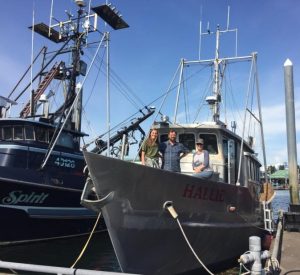
A Petersburg veterinarian floats his clinic to Southeast communities
For most pet owners, visits to the vet are nothing special — maybe even something they take for granted. But what if you don’t have access to medical care for your pet? This is a real problem for many people in Southeast Alaska’s remote communities. A problem Dr. Ken Hill has been trying to address for years at the Waterways Veterinary Clinic. Hill keeps his 50-foot aluminum trawler, the Hallie, in Petersburg’s South Harbor. The Hallie stands out among all the seine boats — she’s obviously not set up for fishing. >click to read< 10:55
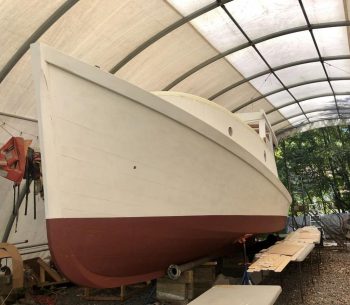
Saving Sylvia II: The story of restoring a historic wooden boat from NC
An old wooden boat built in 1934 is less than three months away from being fully restored and tying up in the water on Shem Creek.,, “These fishing villages, like Mount Pleasant used to be, are slowly disappearing and dying. And the boats are dying with them,” he said. A short while later, Graham was skimming through a magazine called Wooden Boat. He flipped to the last page of the publication titled “Save a Classic” to browse the wooden boats for sale and laid eyes on Sylvia II, a core fishing sound boat in Morehead City, N.C. Photo’s, >click to read< 09:24

With billions at stake, Canada to show U.S. its fisheries protect whales
In an effort to maintain access to the lucrative U.S. seafood market, Canada will submit a “progress report” to Washington outlining steps to protect whales and other marine mammals that interact with more than 200 Canadian fisheries. The submission will be the first test of Canada’s ability to meet upcoming requirements in the United States Marine Mammal Protection Act (MMPA), and comes as three critically endangered North Atlantic right whales are believed entangled in fishing gear in Canadian waters. Efforts to free them are set for Tuesday, a day after Canada announced additional measures to protect North Atlantic right whales. >click to read<08:37
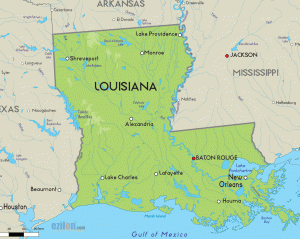
Louisiana lawmakers request disaster aid for seafood industry
U.S. Senators Bill Cassidy, M.D. and John Kennedy and U.S. Representatives Steve Scalise , Garret Graves, Cedric Richmond, Clay Higgins, Ralph Abraham and Mike Johnson today urged Commerce Secretary Wilbur Ross to begin the process of implementing a federal fisheries disaster declaration due to the opening of the Bonnet Carré Spillway. Opening of the spillway is causing hundreds of thousands of cubic feet of fresh water to pour into Lake Pontchartrain each second, impacting various forms of aquatic life that are crucial to Louisiana’s seafood industry. >click to read< 07:42 >Click to read< the full text of the Louisiana delegation’s

































